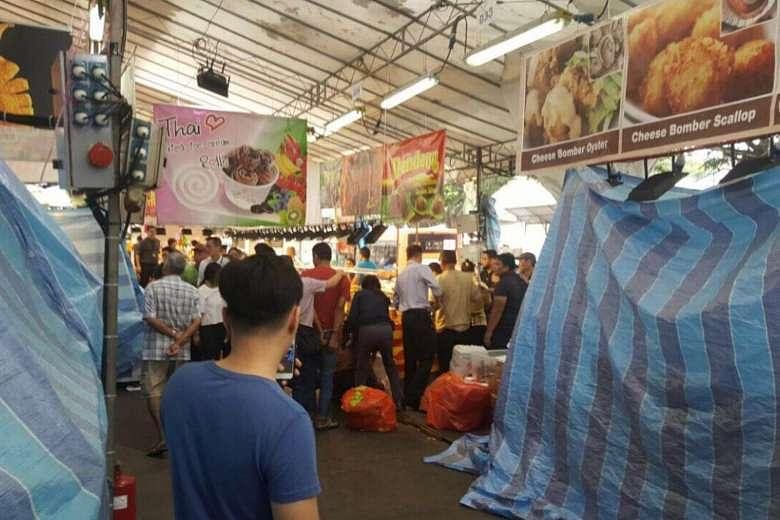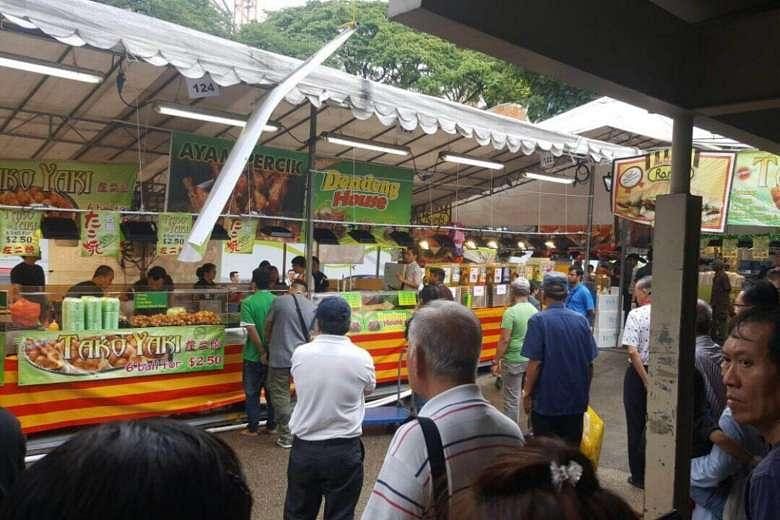SINGAPORE - At around 3pm on Tuesday afternoon, the men entered the Geylang Serai Bazaar, taking photographs and videos like the many visitors soaking in the festivities.
Minutes later, they scattered to a few stalls, before identifying themselves and demanding to see the identity cards and work permits of some of the workers.
What resulted was panic that spread through the bazaar. Workers leapt up on tables and ran off in all directions to escape arrest.
"When I first heard the commotion, I thought some people were fighting," recounted an eyewitness, Mr Ahmet Akpinar, 37, an executive chef selling Turkish ice cream at the bazaar.
That joint raid by the Ministry of Manpower, the National Environmental Agency (NEA) and the Singapore Police Force netted 22 unlicensed workers.
And going ahead, there should be more of such spot checks, says Mr Zainal Sapari, an MP from Pasir Ris-Punggol GRC and an assistant secretary-general of labour movement NTUC.
He tells The Straits Times that he believes some of the workers are from neighbouring countries and are here on social visit passes. "I don't think they work in Singapore," he said.
Stallholders at the bazaar say that some of the workers who were not nabbed on Tuesday had since returned to work.
Adds Mr Zainal: "I think in order to make sure that the message is clearly communicated, it cannot be a one-off joint operation."
The issue has been brewing, he says. For the past one to two years, the MP for Geylang Serai Fatimah Lateef had been "pushing" authorities to conduct checks. She could not be reached Wednesday night.
While it is unclear just how prevalent the problem of hiring illegal workers is, indications are that it is quite rife at the bazaar.
Two stallholders estimate that there are over 50 such workers there. Mr Imran Marican, 26, who sells traditional drinks in packets, says: "You can tell when you look at someone that they are a foreign worker. Especially when you speak to them, they have accents and usually they speak broken English."
A WhatsApp chat group for some of the stallholders broadcasts warnings of raids from the contractors who lease out the stalls .
"Most of us are in that group so we are all aware," said Mr Imran. Added Mr Akpinar: "Once someone hears that someone is doing checks, they will inform the rest and they will run."
The organiser, Geylang Serai Citizens Consultative Committee, as well as contractors in charge of the various tents, did not respond to queries.
When asked what would prompt stallholders to hire illegal workers, many cited manpower issues.
Mr Edward Koh, 28, owner of The Raclette Factory which has a stall there, said: " It's really difficult to get local people to work in a pasar malam."
Mr Andrew Selvarajoo, 28, who sells prawn vadai, said: " People employ illegal workers because they can pay them less than a local worker. Locals typically get between seven to eight dollars an hour while foreign workers can get only $40 a day."
The bazaar, which features around 1,000 stalls, opened last Friday (May 26) and will run till June 24.


